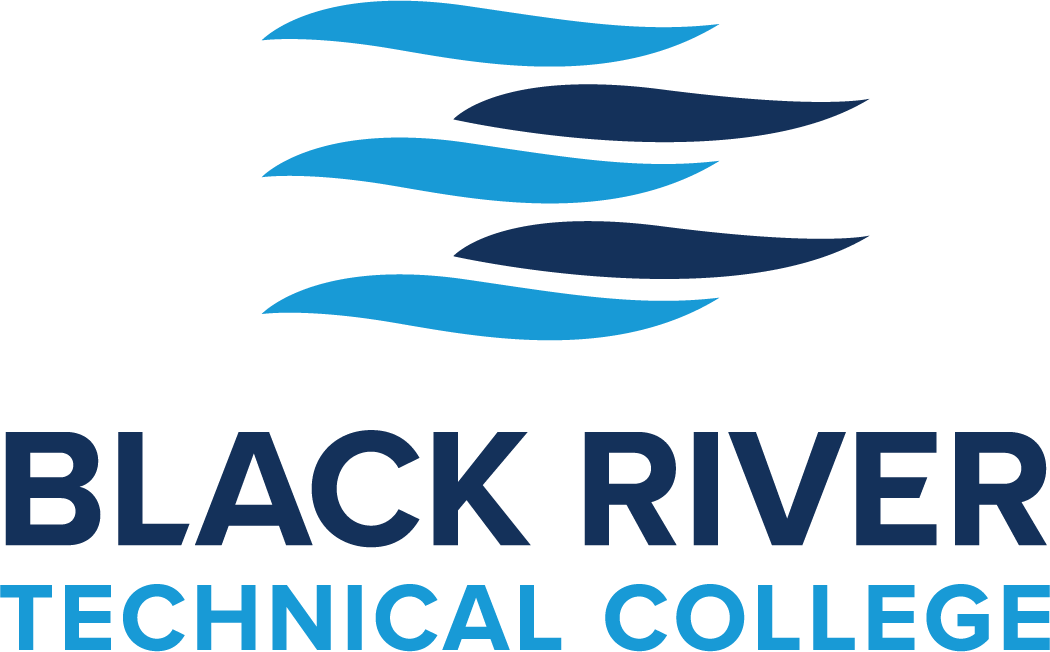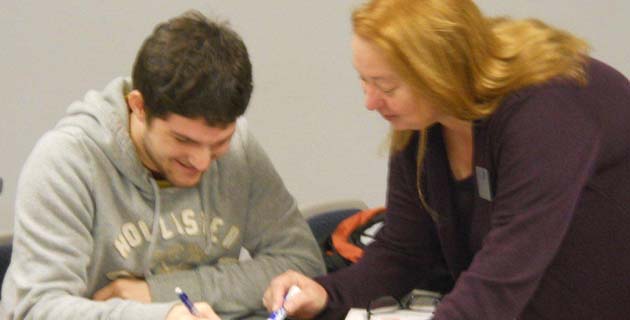Math students in the eight-week “Fast Track” Introductory and Intermediate Algebra classes are giving evidence to a longstanding belief of BRTC Math Instructor Donna Statler: math students do better when they can complete their work in a shorter duration of time. Statler, along with BRTC-Paragould Math Instructor Sandra Williams and their students in the targeted classes, are a part of a pilot project designed to improve success rates and ultimately, graduation rates, by lessening the time it takes for a student to complete his or her coursework. “When you stretch out the time [to complete a class],” Statler said, “more things interfere.”
Math Instructor Sandra Williams agrees. Her Fast Track Introductory and Intermediate Algebra classes have also proven successful. Williams is pumped up about the pilot, and says she is “pleased with their [the students’] attitudes, their work ethic and the educational choices they are making.”
The math re-design had already been planned, based on prior data that developmental math students succeeded at higher rates during the summer sessions than during the traditional fall or spring semesters. When BRTC and the state’s other two-year colleges received a PACE (Path to Accelerated Career Education) Grant last fall to assist in lessening time to degree completion, the math Fast-Track option was a natural fit and has been rolled into the Grant activities in this pilot attempt, according to PACE Grant Coordinator Regina Moore.
It works like this: a cohort of students who test into Introductory Algebra complete this course in only eight weeks (instead of the traditional sixteen weeks) by attending class four days, Monday through Thursday, instead of the traditional two-day schedule. At the end of the eight weeks, successful students in the cohort enroll in the next math level, Intermediate Algebra, thus completing in one semester what typically requires two semesters.
Results of the pilot run are extremely encouraging. Statler’s retention rate was 100%, with all passing the eight-week Introductory Algebra class with a grade of “C” or higher. Williams\’ retention rate was 80%, with 75% of those passing with a grade of “C” or higher. The two who did not pass have been moved into the second half of a traditional Introductory Algebra class and have, in Williams’ words, “a second chance to succeed,” since they still have opportunity to pass the course by the end of the spring semester, with no loss of time.
The students from both Statler’s and Williams’ Introductory Algebra classes are now in the next level, Intermediate Algebra, which began last week.
There are other reasons this fast track structure works well, the instructors point out. For one thing, the students remain together as a cohort in both levels, and thus are more likely to form bonds and to help each other. In addition, the fast track structure means that the students are enrolled in fewer different classes at one time, a benefit that has proven effective in other shortened semesters, such as the intersession, a two-week intensive time frame between the end of the spring semester and the beginning of the Summer sessions.
“With fewer classes, they have less work to concentrate on,” Statler said. “When I have taught math in intersession, there have been very few who did not pass. To tell the truth,” she added, “I’d like to see our entire college move to ‘quarters’ instead of the semester structure.”
Additional re-structuring of classes is already underway, with a pilot now in progress in pairing Writing Fundamentals with Freshman English I, so that students take these classes simultaneously instead of consecutively through a process known as Advanced Learning Program, or ALP. A Fast Track Technical Reading class was also held in the first half of the semester. The results of these classes will be the focus of an upcoming article.
Additional re-design to be implemented in the fall in conjunction with the PACE Grant activities will include the offering of Pre-, Intro- and Intermediate Algebra classes in modular structure, allowing for self-paced progression through the courses.
The bottom line, according to VP for Academics Dr. Roger Johnson, is that colleges nationwide are actively working to decrease the amount of time required for students to graduate. “Studies abound showing that time is the enemy, and that the longer it takes students to complete developmental courses and move into the college credit classes, the greater the likelihood they won’t be successful. We are working to change that and improve our students’ retention and graduation rates.”

